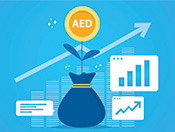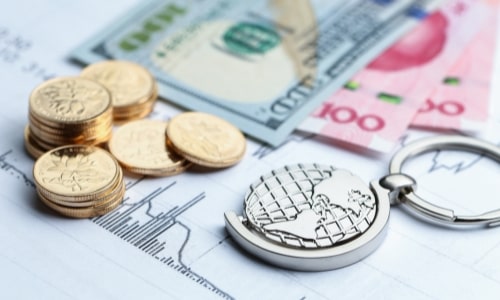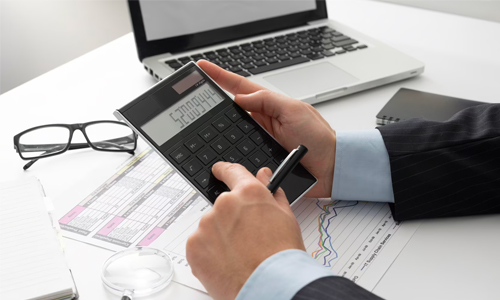How to Survive a Recession in 2025
Table of Content
The United Arab Emirates (UAE) is a nation that has undergone a significant amount of growth and development over the last few decades. Despite its economic prosperity, the UAE, like any other country, is not immune to economic downturns. The global financial crisis of 2008 and the recent COVID-19 pandemic serve as reminders that financial crises can occur at any time. In times of recession, it is crucial to have a plan to become financially resilient. In this article, we will explore tips and strategies to develop financial resilience and become recession-proof in the UAE.
How to Survive a Recession?
Now that we have looked at the key factors contributing to a recession, let’s go through some tips that can make your life recession-proof and help you prepare your finances for recession:
1. Create a Monthly Budget
Creating a monthly budget is an essential step in preparing for a recession. During a recession, you may experience a decrease in income, whether from job loss, reduced hours, or a decrease in business. Having a budget can also help you avoid falling into debt and financial difficulties during a downturn.
To make an appropriate monthly budget, you must formulate a financial plan while outlining how much money is coming in and going out each month. By identifying the areas where you are spending unnecessarily, you can work on your spending habits, prioritise essential expenses, and save for contingencies.
2. Cut-Back Your Expenses
Recessions are characterised by a decrease in economic activity, which can lead to job loss, reduced income, and other financial hitches. In this scenario, it becomes crucial to be mindful of your expenses and limit unnecessary spending.
When you cut back on your unnecessary expenses, you can free up money for more important things such as savings or paying off debt. Additionally, it can help you reduce your overall cost of living, meaning that you can be in a better position to weather an economic slowdown.
3. Set Financial Priorities
When you set financial priorities, you can ensure that your money is going only towards the necessary expenses such as savings for eventualities, paying off debt, or maintaining essential living expenses. This ensures that you are able to meet your most important financial needs and alleviates financial stress during uncertain periods.
To get a clear picture of your financial stability, you must answer the following questions –
- Do you have sufficient cash in hand to meet uncertainties?
- Can you convert your assets into cash, if required?
- What is your current debt load, including loans, credit cards, and more?
- How much do you have to pay each month for health insurance, food, shelter, transportation, and childcare?
- Do you have any significant life events coming up (marriage, the birth of a child, retirement, and so on)?
Once you understand your essential expenses and anticipate your needs for the next 6-7 months, you can certainly be prepared for the recession and cope easily with all the upcoming financial hurdles.
4. Focus on Debt Repayment
Focusing on debt repayment is central to preparing for a recession. This is because during a recession, the economy slows down and unemployment rates tend to increase, which can make it difficult for individuals and businesses to make their loan payments.
By paying off debt before a recession, you can reduce your risk of default and be better prepared to face the economic downturn. Moreover, reducing your debt can increase your credit score, which can be helpful in case you need to take out new loans during a recession.
Keep the following points in mind while focusing on debt repayment –
- Keep track of your rent and mortgage payments, and make sure that you pay them on time.
- Keep your car repayments from falling behind, especially if you are using your car to go to your workplace.
- You can request a hardship application if your income decreases, which may allow you to avoid debt repayments for a few months.
- If you struggle to pay the minimum fee for your credit card, try negotiating a payment plan with your credit card issuer.
- After meeting your debts, try to keep up with your medical debts or health insurance premium amount so that your policy is not cancelled.
5. Expand Your Career Opportunities
Expanding career opportunities is crucial to prepare for a recession as it can increase your chances of finding and keeping employment. During a recession, unemployment rates tend to rise, and many companies lay off their employees.
However, if you have multiple career options and skills, you will be more likely to find a job or be able to transition to a different field. Additionally, having a diverse set of skills can make you more valuable to employers, increasing your chances of being retained during a recession.
Another important thing to keep in mind is that you must maintain strong connections and enhance your network to find opportunities easily. This can help you in finding and applying for jobs even before they are listed online.
6. Bolster Your Emergency Funds
Having an emergency fund is essential as it can provide a financial safety net for you and your family. During a recession, many people may lose their jobs or experience a reduction in income, making it difficult to pay bills and meet expenses.
Emergency funds prove helpful in these cases, as they cover unexpected expenses and maintain financial stability during the recession. If you already have funds, you will not be required to take high-interest debt, such as credit card debt or personal loan, to meet any emergency. It is advisable to have at least three to six months of living expenses saved up in an easily accessible account (like a savings account).
7. Evaluate Investment Choices
Another thing to be considered while preparing for recession is your investments. Evaluating your investment choices and diversifying your investments to grow your wealth during the downturn is recommended. This is because during a recession, the stock market and other investments may experience significant declines, which can make it difficult to predict which investments will perform well and which will not.
To overcome such a situation, you must balance your portfolio and make adjustments to your investments plans by assessing the risk and return of each investment. In addition, you must check on your investments from time to time to align them with the current market conditions and your risk tolerance.
It's also essential to have a long-term investment strategy and not to make impulsive decisions based on short-term market fluctuations.
Mistakes to Avoid During a Recession
Here are some common mistakes committed by a lot of us during an economic down time that you must avoid at all cost–
- Not preparing for a recession: Not having a plan in place for how to manage expenses and maintain financial stability can quickly deplete your funds.
- Not reviewing or adjusting your budget: A recession may lead to changes in income or expenses, and it's important to review and adjust your budget accordingly.
- Not paying off high-interest debt: High-interest debt, such as credit card dues, can be challenging to pay off during a recession. It's advisable to focus on paying them off as soon as possible if you anticipate a recession.
- Not diversifying investments: Diversifying investments can help you properly manage risk and potentially identify opportunities for growth during a recession.
- Not reviewing your investment choices: Periodically reviewing and assessing each investment's risk and return can help you align them with the current economic conditions.
- Not having an emergency fund: An emergency fund can help cover unexpected expenses and maintain financial stability during a recession.
- Not seeking advice from financial experts: Seeking advice from financial experts, such as a financial advisor, can help you better understand your options and make informed decisions during a recession.
- Not being flexible and adaptable: Being flexible and versatile in terms of career and income options can help you better weather a recession.
In conclusion, becoming recession-proof in the UAE requires careful planning and wise financial decisions. By building an emergency fund, diversifying your income, paying off debt, investing wisely, creating a budget, practising frugal living, and reviewing your insurance coverage, you can develop financial resilience to weather any economic storm. Remember that small changes in your financial habits can add up over time and make a significant difference in your financial well-being.
More From Investment
- Recents Articles
- Popular Articles












.jpg)
.jpg)





.jpg)

.jpg)
.jpg)

.jpg)





















